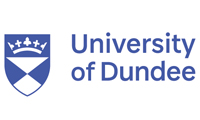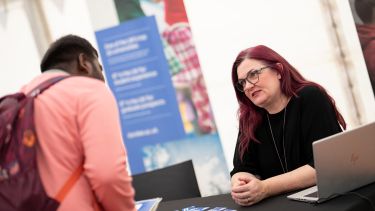
The University of Dundee offers a range of equity initiatives and policies for staff and students, but embedding these elements in every aspect of academic life is what drives inclusion
With students putting universities under scrutiny over their commitments to equality, diversity and inclusion (EDI), it can be tempting to reel off a list of initiatives on issues such as race, gender and disability that in isolation do little to improve the actual culture or experiences of staff and students.
The University of Dundee’s approach is different, according to senior vice-principal Shane O’Neill, who is co-chair of the university’s EDI Committee and who has been core to shaping its work in this area. “Like many institutions, we’ve engaged more in recent years in a range of EDI initiatives,” he says. “But we’re trying now to take a more integrated approach, to have a shared, coherent sense of why it’s important, and make sure it’s embedded in our structures rather than compartmentalised.”
Changing mindsets rather than simply signing up to charters is at the heart of this strategy. “There are practical measures in place to ensure the vision is shared, but also to communicate why it’s important. We need to ensure it all adds up so it makes a positive difference,” O’Neill adds. One of the key actions the university has taken is to sign up to Advance HE’s Race Equality Charter, which it has been a member of since December 2018. It was recently presented with a bronze charter award in recognition of its work to improve the representation, progression and success of minority ethnic staff and students.
The university also has a firm commitment to the progression of women in academic careers, particularly in STEM subjects, and has been involved in the Athena SWAN Charter framework for a number of years. This includes having a publicly available action plan detailing its actions in this area, which include addressing local areas of gender imbalance in the student population, ensuring that there is no gender bias in student and staff recruitment. For students, the Interconnect network brings together women who study STEM subjects across Scotland, running events throughout the year, connecting students with employers and supporting opportunities such as internships.
There are staff networks across the university addressing a number of diversity strands: the BME Staff Network supports black and minority ethnic staff members and helps drive forward the university’s commitments on race equality; the Disabled Staff Network provides a space for staff with disabilities to discuss and identify issues affecting them; and the LGBT+ Staff Network focuses on anti-discrimination issues and supporting our LGBT+ community. All offer feedback on university strategy and policy.
O’Neill says it’s crucial to ensure that the networks collaborate and understand each other’s challenges and successes rather than operating in silos. “We want to ensure all of these groups are supportive of each other, rather than having competition among groups as to which inequality is most significant, which is why we need an integrated EDI strategy,” he says.
Networks feed into the plethora of employee policies at the university that support inclusion, including a menopause policy, safe leave policy in the case of gender-based violence incidents, shared parental leave and leave for fertility treatment. The LGBT+ network works closely with the charity Stonewall to develop the university’s annual application for its Workplace Equality Index, and also partners with the LGBT+ student society on various events, including those featured in LGBT+ History Month.
Students can learn about Dundee’s commitments to EDI before they even embark on their degree. There are guides available on all aspects of inclusion, including relevant legislation, the role equality plays in planning a student event, and why the university undertakes equality monitoring. This means that staff and students alike can become fully trained in the importance of diversity and the network of support available to those from under-represented groups. “We work closely with the student union on this, but also work with students on the academic curriculum,” O’Neill says. “We encourage them to be co-creators of the curriculum to an extent, ensuring they challenge us in areas such as decolonisation.”
The support offered to students in terms of inclusion continues even after graduation. “If we’re aware of someone’s differential experiences from the outset, that filters through to the support we offer after graduation,” O’Neill explains. Like many universities, the careers service offers ongoing support throughout alumni careers, and mentoring relationships are often set up with careful consideration of participants’ backgrounds and how each might benefit.
The important thing is to recognise that no institution is perfect and that there is still much to learn, says O’Neill. “We can always be involved in initiatives, but taking inclusion to heart and making it the raison d’être of the institution is something else,” he adds. “When we did the Race Equality Charter survey, for example, some of the inputs showed that not everyone shared this vision. So we’ve decided to adopt an upfront approach where we don’t claim to get everything right. We know there’s deep structural inequality in wider society, and we operate in awareness of that legacy.”
The university has commissioned some research to examine the links between the institution’s foundation and slavery – an exercise that other universities have found to be enlightening. “We’re using this as a way to open up that conversation and to use it as a platform for ongoing engagement with our community. Making up for historical wrongs adds further motivation to our positive social purpose,” he says.
Transparency, openness and debate lie at the heart of the University of Dundee’s ongoing approach to EDI, even if this occasionally leads to “lively debate”, admits O’Neill. “There can be concerns from some quarters that we’re taking a particular view or that perhaps by committing to certain charters we’re at risk of compromising academic freedom, but we don’t see any conflict whatsoever between academic freedom and our commitments to equality, diversity and inclusion.”
Find out more about the University of Dundee’s commitment to EDI.

